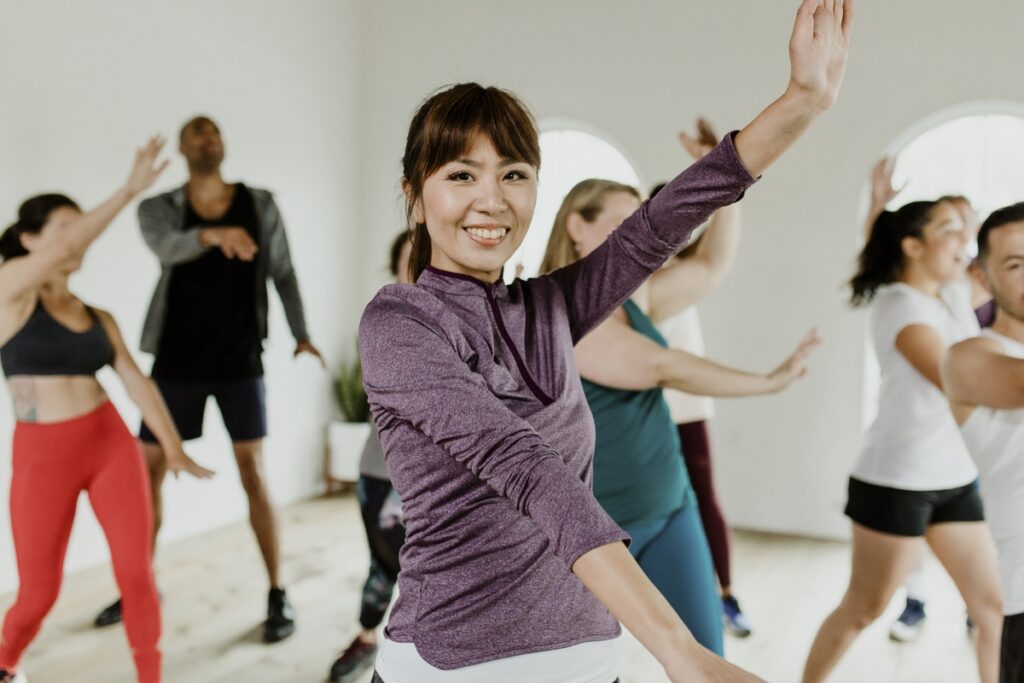Becoming a dance teacher is a rewarding career choice for those passionate about dance and education. In the UK, this profession offers a diverse range of opportunities to inspire and nurture young talents, from casual operations run out of home dance studios all the way to global enterprises franchised from Bath to Bombay.
Today, we’re hoping to provide you with the inspiration to follow your dream to become a dance teacher here in the UK. All stretched and warmed up? Then turn the music on and let’s dive in…
Qualifications
To embark on a successful journey as a dance teacher in the UK, acquiring relevant qualifications is crucial. The most common pathway is to pursue a degree in dance or performing arts from a reputable institution, or a Level 3 qualification in Performing Arts Dance.
Many universities and colleges across the UK offer specialised dance programs that provide comprehensive training in various dance forms, pedagogy, choreography, and performance skills. Additionally, obtaining a teaching qualification such as a Postgraduate Certificate in Education (PGCE) can enhance your employability and open doors to teaching in schools.
To teach in a state school, you’ll need qualified teacher status (QTS). If you aim to be a lecturer in a university, you’ll need a postgraduate qualification or a recognised profile as a professional performer, along with teaching experience.
For those who wish to teach privately, professional qualifications, awards and certificates, such as those offered by the Royal Academy of Dance, can lend some serious credibility to your business.

Career Prospects
The demand for qualified dance teachers in the UK remains consistently high. As a dance teacher, you can explore a variety of career paths. Some choose to work in private dance studios, where they teach a wide range of students, from beginners to advanced dancers.
Others find fulfilment in teaching within educational institutions, such as primary and secondary schools, colleges, or universities. Furthermore, opportunities exist in community centres, youth organisations, and even professional dance companies. With experience and expertise, you may also consider establishing your own dance school or joining established dance academies.
In short, the future job prospects for dancers and dance teachers are promising. As My Future report, ‘’employment of dancers and choreographers is projected to grow 27 percent from 2021 to 2031, much faster than the average for all occupations.’’
About 2,700 openings for dancers and choreographers are projected each year, on average, over the decade.
Popular Places To Teach
London, being the cultural hub of the UK, offers numerous opportunities for dance teachers. Accordingly, the opportunities for finding a dance studio for hire in London are much broader in scope than any other UK urban centre.
Indeed, the city boasts prestigious dance schools, renowned performing arts institutions, and a vibrant dance community. Manchester, Birmingham, Edinburgh, and Glasgow are also known for their thriving dance scenes.
However, it’s important to note that opportunities can be found throughout the country, including smaller towns and cities. Local dance schools, community centres, and educational institutions often seek passionate dance teachers to inspire their communities.

Average Salary
However passionate you are about dance, it’s still important that you’re able to earn a living. Well, you’ll be pleased to hear that the average dance teacher salary in the United Kingdom is £37,553 per year or £19.26 per hour. Entry-level positions start at £31,944 per year, while most experienced workers make up to £48,785 per year. However, salaries can vary depending on factors such as location, experience, and the type of institution where you teach.
The Bottom Line
Becoming a dance teacher in the UK is an exciting and fulfilling journey that requires dedication, passion, and a solid foundation of qualifications – as well as plenty of moves, of course!
Remember, this profession allows you to inspire and educate future generations of dancers while contributing to the vibrant dance culture of the UK.





